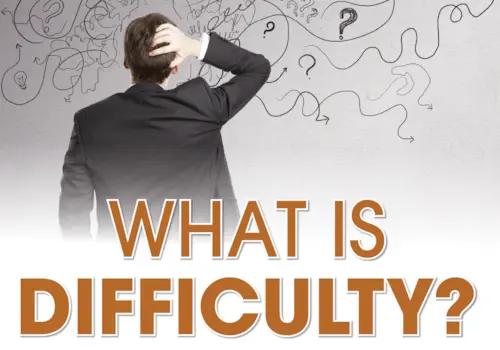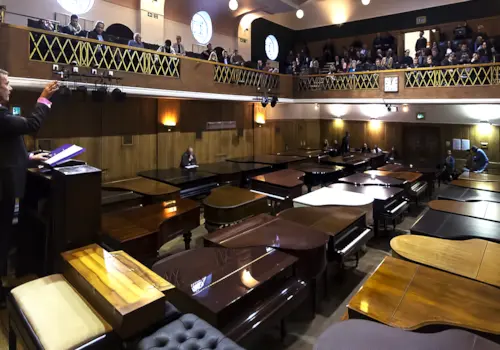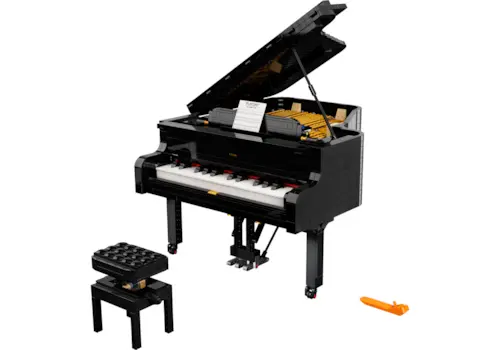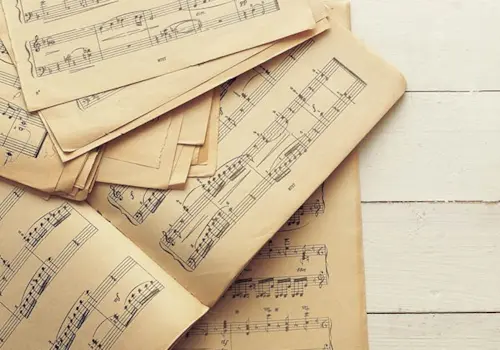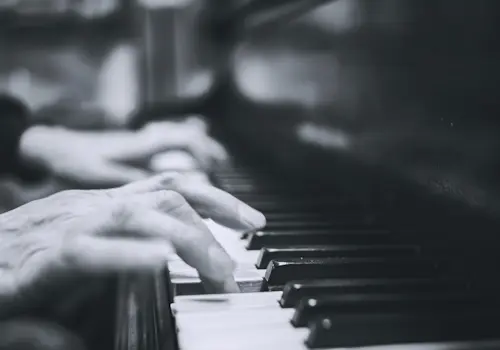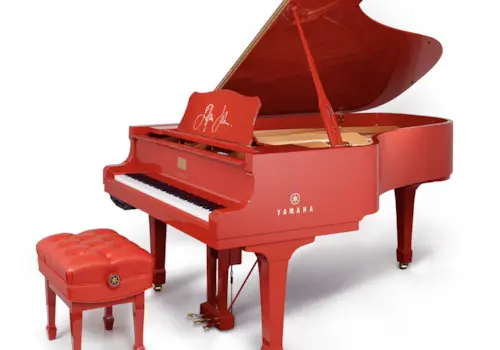Ellie Palmer takes a close look at a piano method that has taught over 5,000 people worldwide – and that knows how to cater to the needs of the more mature student
Each person is unique. And we all function differently. In terms of how we go about learning a craft, some of us thrive on the visual/reading aspect while others prefer to be ‘hands on’ from the outset. Whilst most piano students follow the traditional way of notational learning, others might be looking for an easier and ‘simpler’ approach.
Created by piano teacher Declan Cosgrove – who took piano lessons for 10 years before focusing on playing by chords in various groups, writing his own songs and eventually learning to play fluently by ear – DecPlay uses a piano method that utilises ‘relative numbers’ lead sheets and playing patterns. In most cases, the method generates rapid results, with some students learning a song within the first hour. It’s a method easily accessible for all ages – especially for students age 50 plus.
To date, the results are impressive: DecPlay has been awarded a patent, it has been featured on the BBC (where beginners were taught to play a recognisable song on the piano in less than an hour!) and has the highest rating of any piano course on Trustpilot.
Let’s take a look at five key reasons why this learning method may actually be ideal for some learners.
1. No need to learn piano notation
Many piano learners struggle with traditional music notation – especially for those who suffer from dyslexia, sight issues and old age. A typical scenario is that they might have tried learning using notation in the past, but the chances are they gave up after a month or two.
DecPlay has chosen to remove this barrier by using a type of sheet music that beginners can more instantly understand. The clean, simple layout is ‘softer’ on the eyes for those with sight issues and/or dyslexia, says Cosgrove. At the other end of the age spectrum, he points out that this way of learning is easily understood by children as young as four.
Image of how music looks using the DecPlay method
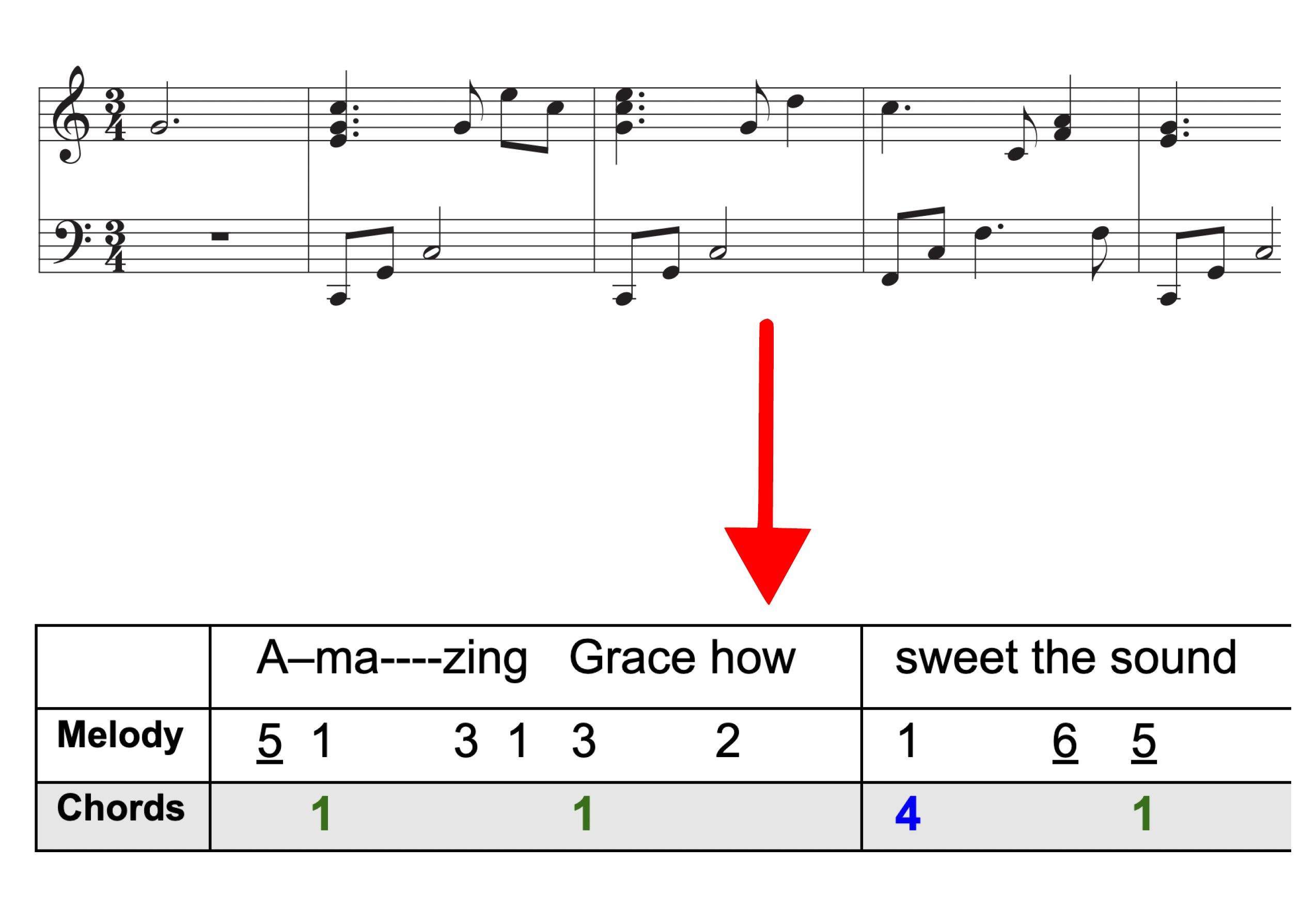
2. A method designed specifically for later-in-life students
It’s not often you come across a piano method built specifically for those of a mature age! I’ve already mentioned above that the simple layout of the music is highly beneficial for those with sight issues. In addition to this, the DecPlay method also takes into consideration those with arthritis and memory loss.
How?
The song sheets provided are already in a language that you understand: numbers! The method uses numbers 1 through to 7 to help identify both the melody and accompaniment of a piece of music. This system of numbers and patterns is designed to mirror how we ‘hear’ music, and it avoids the need to read the ‘complicated dots’ on sheet music – making playing piano easy, fast and fun. It also enables playing in multiple styles and advanced skills, including improvisation and playing by ear, so says its creator.
Let’s break it down below:
Accompaniment
The accompaniment part on a score often looks like the most complex part. The key to simplifying it is to create patterns out of the accompaniment.
The DecPlay music format uses 'relative numbers' enabling you to play in any key from the same song sheet. When playing in the key of C, this would be:
C(1), Dm(2), Em(3), F(4), G(5), Am(6), Bdim(7)
Instead of reading dozens of individual notes, all you simply have to do is read the numbers.
Melody
The melody also uses the same number system. However, when it comes to melody, this system has never been implemented before – which is why the method was award a patent for being the first of its kind.
The method, called PianoTabz, goes like so:
C(1), D(2), E(3), F(4), G(5), A(6), B(7)
DecPlay student Mike, age 80, learning with his two grandchildren
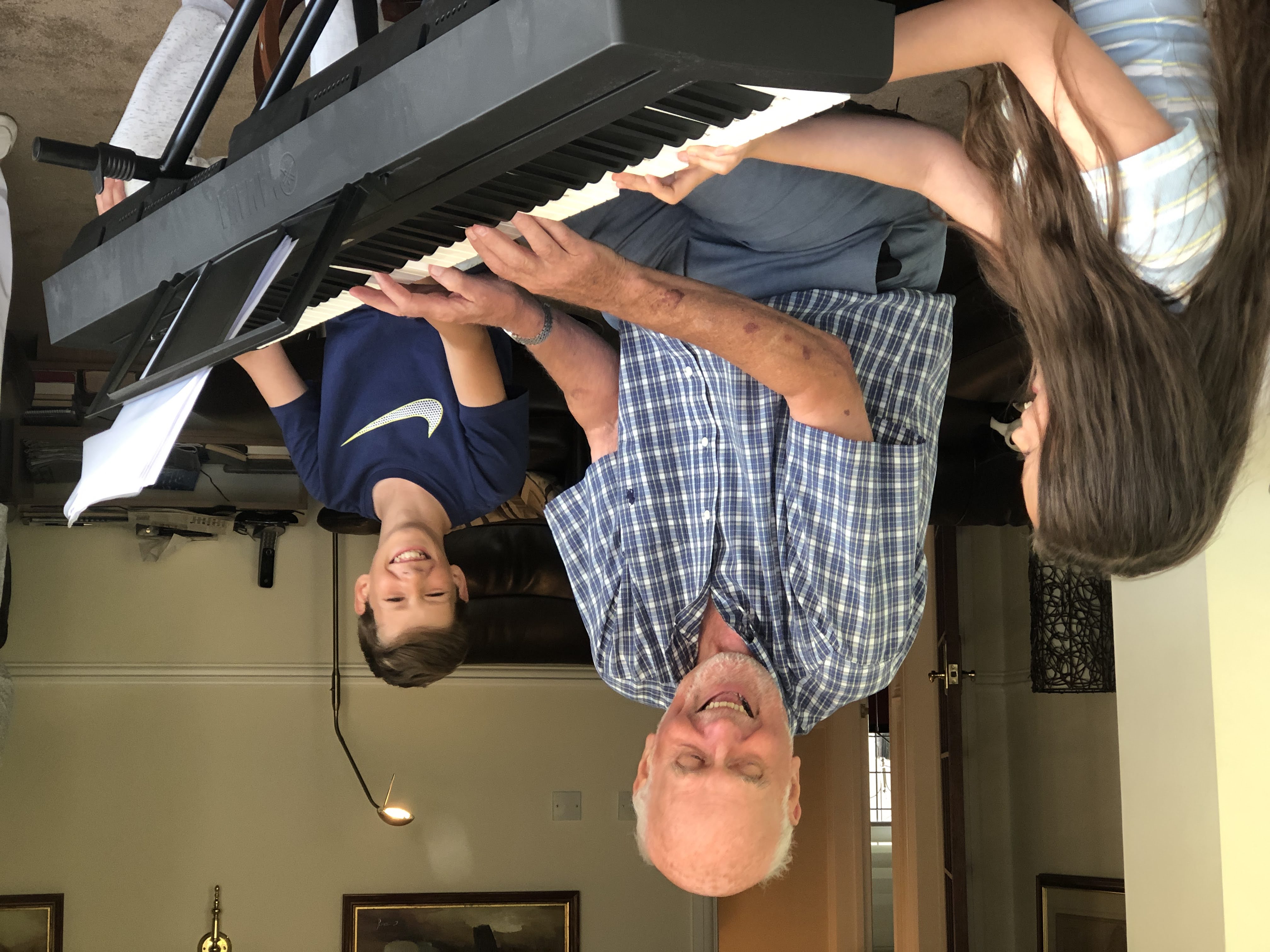
3. Fast results
Imagine having no background education on how to play the piano, but then suddenly you’re able to play one of your favourite songs within the hour. How incredible would that be? DecPlay aims to get you playing – with both hands – as quickly as possible.
People with previous piano experience often find the process even faster, says Declan, but he points out that it’s an absolutely perfect method for the total beginner. Indeed, as one can see from the various testimonials, many students had previously considered themselves to be ‘not musical’, having tried and failed to learn piano in the past.
As well as being able to play your favourite songs within hours, the method is also meant to rapidly improve more advanced skills such as improvisation and playing by ear.
4. Play your favourite songs and pieces
While DecPlay is designed for popular music, there is also scope to learn simplified versions of classical pieces with the DecPlay song library containing over 70 classical song sheets including Canon in D and the opening sections of Für Elise, Ode to Joy and the ‘Moonlight’ Sonata. This enables songs to be learnt quickly and memorised easily. As well as enabling solo piano, the method also enables accompaniments for singing.
First-time learner Pam, age 60
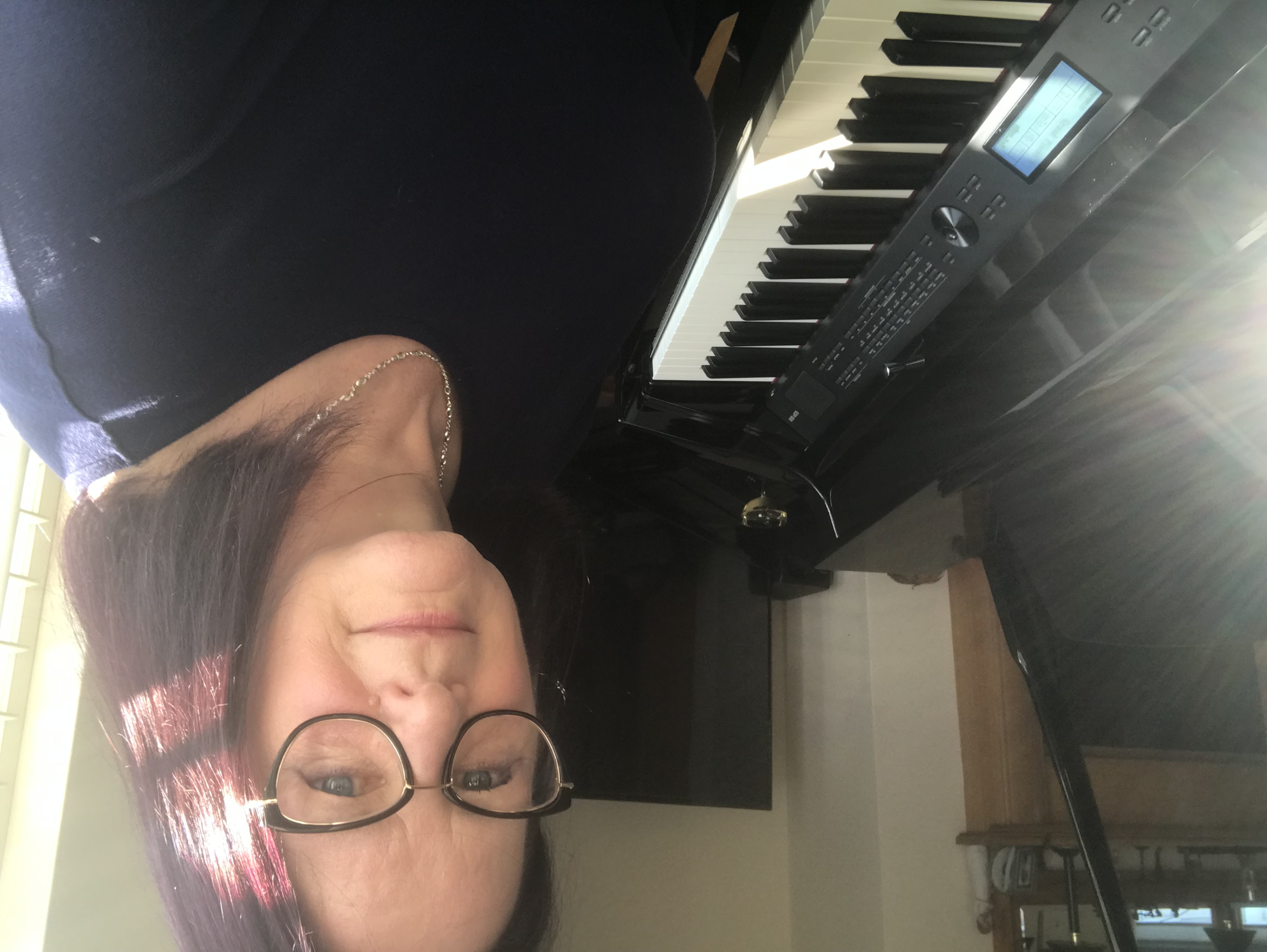
5. Learn at your own pace
The online course is accessible 24/7 using a computer, tablet or mobile phone. Lessons are easy to follow in a step-by-step process, which allows you to repeat video lessons as often as you like and to slow them down in speed.
Extra help lessons are provided for common challenges, such as playing with the left hand and coordinating hands, and all learning is done at your speed and at your convenience.
There are plenty of videos of amazing student progress at www.decplay.com/reviews and also heart-warming stories from fellow learners who have succeeded with the DecPlay piano method (read here at www.decplay.com), including one such story about 92-year-old Jean:
Jean suffered a stroke two years before she began learning the DecPlay method, which stopped her from learning the piano via traditional methods. She had previously been able to play the piano, however after her stroke she found she could no longer play. With the DecPlay method, she can now play a number of her favourite songs. She says, ‘I found it ideal for me because at last I can play with confidence. It doesn't matter how old you are or what illnesses you have or anything like that. Just enjoy what you're doing.’
Cosgrove, rounds things off nicely: ‘You are never too old to learn piano, as proven by Jean (aged 92) and Harry (aged 90) and thousands of other seniors who have learnt to play piano using the DecPlay method. All you need is a passion for music and an effective method designed for the style of music you want to play.’
Reasons to try DecPlay:
✔ Highest rated piano course on Trustpilot (93% 5 stars)
✔ Options to play by ear or use 'numbers' song sheets
✔ Rapid results
✔ Skill development – from beginners to advanced
✔ Easily accessible
✔ Suits all ages (from 4 to 95+)
✔ Specific benefits for seniors (low sight / arthritis / memory)
Go to DecPlay.com for further information, and try a FREE DEMO here!

